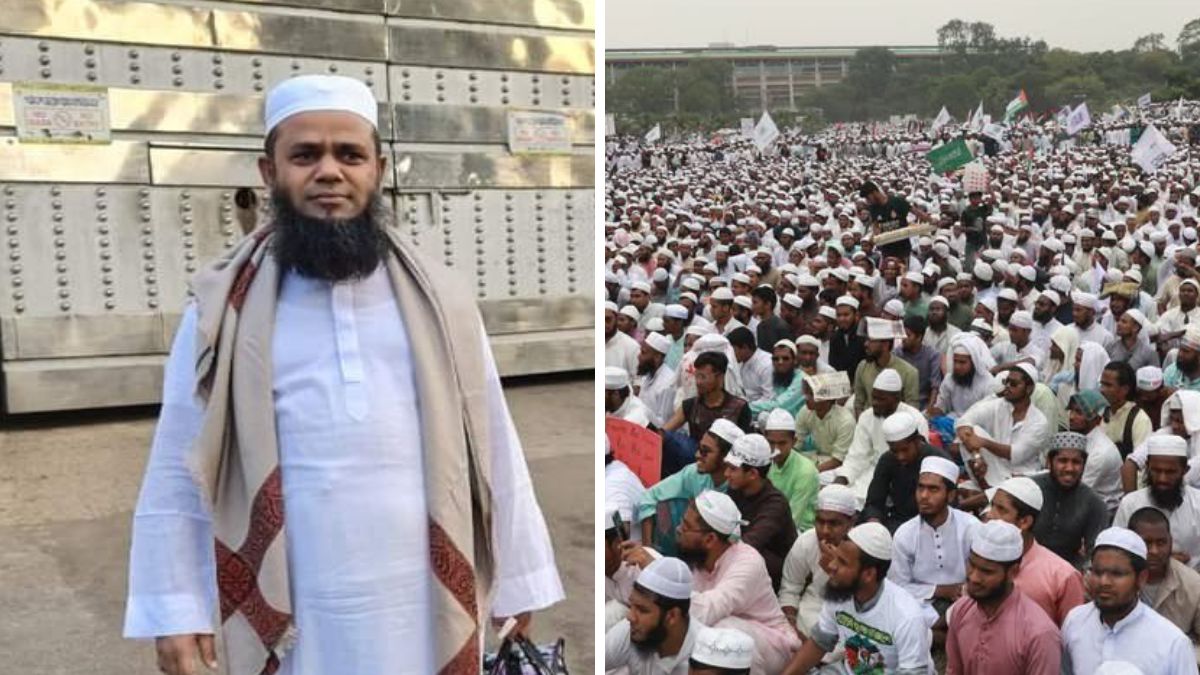Bangladeshi radical Islamists who threatened Chief Advisor Yunus now turn against Indian media
 Hefazat-e-Islam secretary general Maulana Azizul Haque Islamabadi. (Right) A protest meeting held by the group | X
Hefazat-e-Islam secretary general Maulana Azizul Haque Islamabadi. (Right) A protest meeting held by the group | X
A prominent leader of a radical Islamist group in Bangladesh, Hefazat-e-Islam Bangladesh (HIB), has stated that there was nothing "pro-Pakistan" in the country and pinned the origin of such charges on 'India's rhetoric'. HIB secretary general Maulana Azizul Haque Islamabadi said the "Indian rhetoric" was aimed at dividing the unity of the country.
HIB is a Deobandi Islamist advocacy group turned influential in the country after the toppling of the Sheikh Hasina regime. The extremist group has been triggering unrest in the country seeking the abolishment of the government women's commission, stating a "men and women can never be equal". The group also stated the panel was "blaming religious and social norms for gender discrimination, which is a clear rejection of Islamic law."
The group also threatened chief adviser Muhammad Yunus that he would be treated like deposed Prime Minister Sheikh Hasina if he planned to implement "anti-Islamic" proposals made by the Women's Affairs Reform Commission.
The Islamist group that reared its head after the toppling of the Hasina government tried to pin the blame on Indian media, alleging that it always frames the anti-fascist and anti-hegemonic student-public of Bangladesh as 'pro-Pakistan'. "At this moment, labelling the dissidents as 'pro-Pakistan' is tantamount to reviving the Indian narrative in this country," Islamabadi said in the statement.
The radical organisation grabbed public attention in 2013, when it turned out with more than half a million activists to seize the capital. Despite the government quelling the protest, the group retained its stronghold through its network of hundreds and thousands of madrasas spread all over the country.
Proponents of anti-India rhetoric, the group now blames India for the unrest in the country, alleging that Indian rhetoric was responsible for the "suppression and death of opponents during the fallen Awami fascist regime."
“We do not want to return to that suicidal, backwards political culture in the post-hegemonic and post-fascist Bangladesh. The practice of any Indian rhetoric at this time would create an opportunity for Indian hegemony by provoking new divisions within the July unity,” the Hefazat leader bizarrely claimed.
He said "1947 happened to protest the political freedom and rights of the deprived Muslims against "Hindu communalism", and 1971 happened due to "oppression and dictatorship of the Pakistani military junta".
"India’s anti-Muslim narrative is present with each of these, which we have to confront," he said, alleging that top Islamic leaders of the country were judicially assassinated using Indian rhetoric and narrative. "This should never be allowed to happen again. We believe that there is nothing as ‘pro-Pakistan’ in this country," Maulana Azizul added.
World